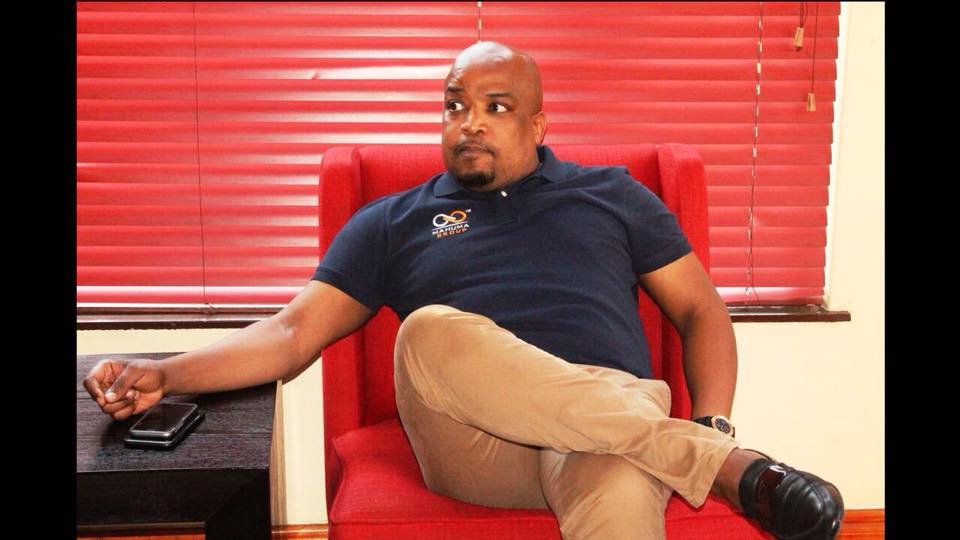Thuletho Zwane
Matome Rapetsoa was seven years old when he watched his first play. This was back in 1983.
“The play was called ‘Forget about me’. It has a line that still lingers in my mind by a character called ‘Sethakga’ which was portrayed by the legendary Alfred Lekalakala.”
“Sethakga says the words, ‘I always attend red carpets events where I meet other wives with other husbands… but always keep the secret for the sake of peace, harmony and togetherness.’ I think it’s more about the manner in which he delivered that line, the technique. He’s a brilliant actor,” says Rapetsoa.
He mentions another favourite play, Gibson Kente’s 1988 play called Give a Child. “There was a song in Give a Child sung by the late Mme Zakithi Dlamini also called ‘Give a Child’… it was a masterpiece I tell you,” he says.
This is how Rapetsoa’s journey and love for the arts and theatre began.
He became a radio actor at the age of six and at age 12, a stage actor. He is now a theatre writer, actor, director and producer. He found his niche as a producer in industrial theatre.
His most recent production is called Time is Money, Save Now. The play uses drama and music to teach people about financial literacy and financial management. It encourages people to start saving money for the betterment of their lives and future. Time is Money, Save Now has toured across the country presenting shows to the public in public spaces, universities, factories, townships, mines and rural villages advocating and educating society. It’s main purpose is to highlight the important role economic freedom plays in our lives, saving and investing being the core message.
Rapetsoa tells Inside Education it is critical people understand the importance of financial literacy and financial management.
“The reason I say this is because, A R20 note is just a R20 note to someone who is not financially literate and lacks financial management skills. It becomes something to spend; something to consume; something to use. But the same R20 note presents an opportunity to someone who understands financial literacy and management. To that person the note presents an opportunity to economic empowerment and financial freedom,” he says.
Investment Banker and CEO of Luthuli Capital, Mduduzi Luthuli, told Inside Education that financial literacy and financial management should be viewed as a human right.
“As a country, we’ve seen where a lack of personal finance education can lead. Millions of South Africans struggle every day with their money, living pay-cheque to pay-cheque and relying on credit cards for necessities.”
“Beyond that, many South Africans are finding that they can’t buy homes, invest for retirement, or save for their child’s education because of their own personal debt, massive car payments, and general lack of financial planning,” he said.
Luthuli added that this is why Financial Literacy and Financial Management should become part of the school curriculum because a lot of the money problems South Africans face could be avoided if financial literacy was taught earlier and made part of the graduation requirement.
The Financial Services Board (FSB),an independent institution established by statute to oversee the South African non-banking financial services industry in the public interest, saw the need to teach South Africans about better money management. They commissioned Rapetsoa and his company, Mahuma Group, to find creative, innovative and original ways to teach financial literacy.
“I got an opportunity to work with the FSB in 2015. FSB saw that South Africans are bad savers and that there was a need for an intervention. They found that the lack of a savings culture was worse among ordinary people. This was mainly because of a lack of information about saving, but more importantly, the lack of financial literacy,” says Rapetsoa.
His play is an interactive production adaptable to local situations with characters whose stories and situations can resonate with the audience.
“We always use language predominantly spoken in a specific community and our characters are those people can easily recognise. We have two central characters, an old man who has retired in style from his factory job. He was always financially prudent in his working life and he saved well. He bought a house for his family and is living off his savings. He has not touched his retirement funds. He is the pride of his community.”
“The other character is broke, has exhausted his retirement funds and has not even bought a house for his family. He used to be a man about town, drinking single-malt whisky and shopping expensively in capitals of the world, including in Dubai. Now he has nothing. The audience sees these people and understand these situations,” says Rapetsoa
He adds that seeing live drama on stage means the concentration span increases more that being forced to sit in a classroom reading textbooks. This way the audience becomes part of the solution.
Rapetsoa roped in his father, Mahuma Paul Rapetsoa, a well-known playwright himself and former head of drama at SABC radio station Thobela FM, as director of the play.
He tells Inside Education that Mahuma Group believes in community and societal development. He explains that after each performance, they hold workshops with audiences where they discuss saving, investing and long-term financial planning.
Rapetsoa says he took advantage of an information dissemination gap in the market, and is using his skill, theatre, to fill that gap.
The play has been performed in Mpumalanga, Gauteng, Free State, Eastern Cape, Limpopo and Kwa Zulu Natal. The production went to the Northern Cape on 5 March.







